Sex workers in Thailand
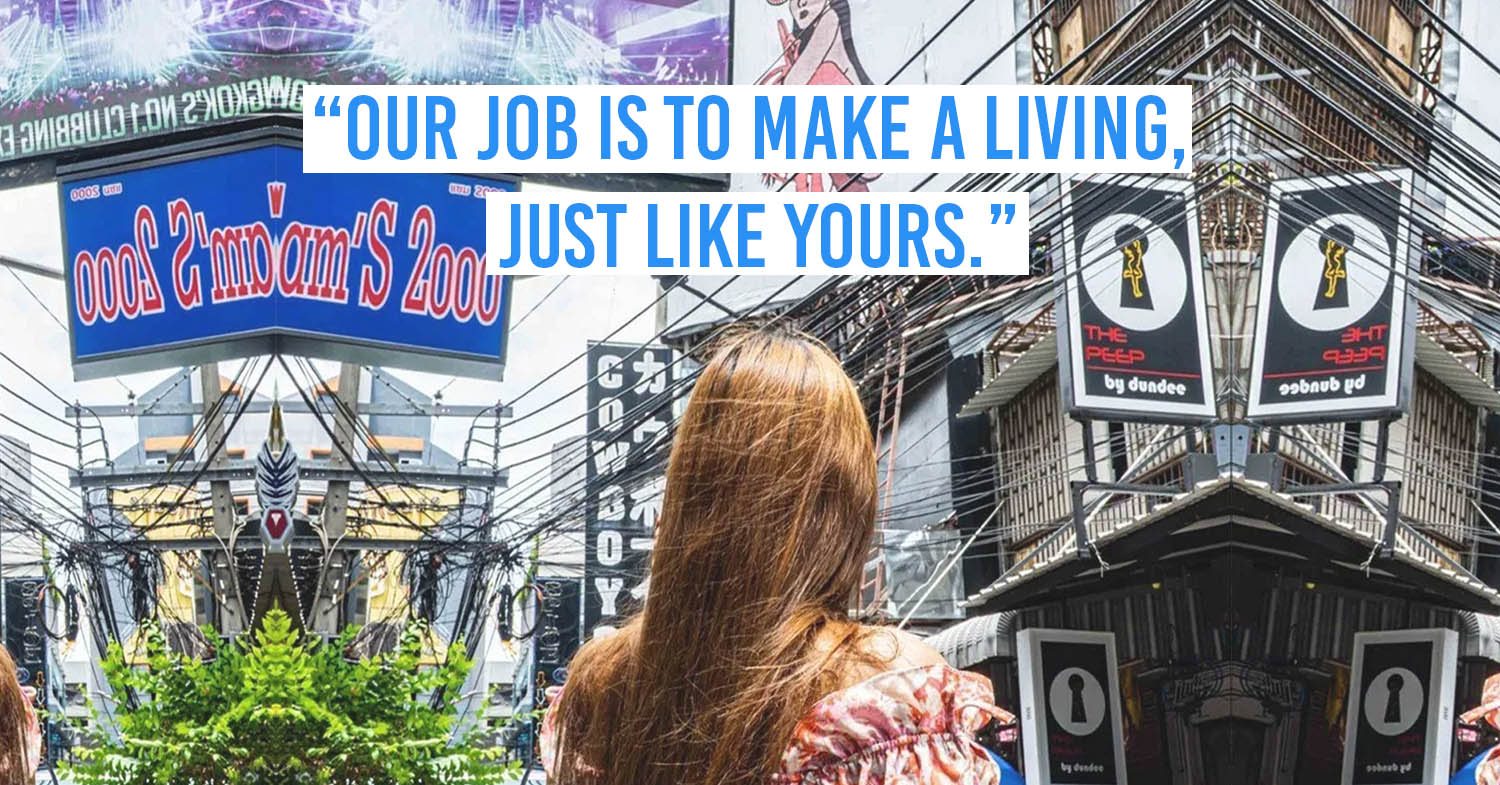
Four years ago, Nira came out to me and another close friend over dinner as a sex worker. We spent the entire evening talking about it. I was fascinated by her choice and remembered looking at her from across the table thinking, “she rocks.”
Nira and I went to the same high school in a small province of Angthong, in central Thailand. After graduation, she fully embraced her true self as a trans woman and grew up to be one of the most stunning women I’d ever seen, both inside and out.
I got back in touch with Nira, now 24, during the pandemic, where she shared her personal struggles of being a sex worker in Bangkok amid COVID-19 – through virus transmission risks, curfews, and lockdowns.
Note: ‘Nira’ is an alias, which she borrowed from the trans female protagonist with the same name in Bai Mai Tee Plid Plew, a Thai novel that was recently adapted into a TV series. Her real name remains undisclosed to protect her identity.
The interview has been tweaked for clarity.
Life before COVID-19
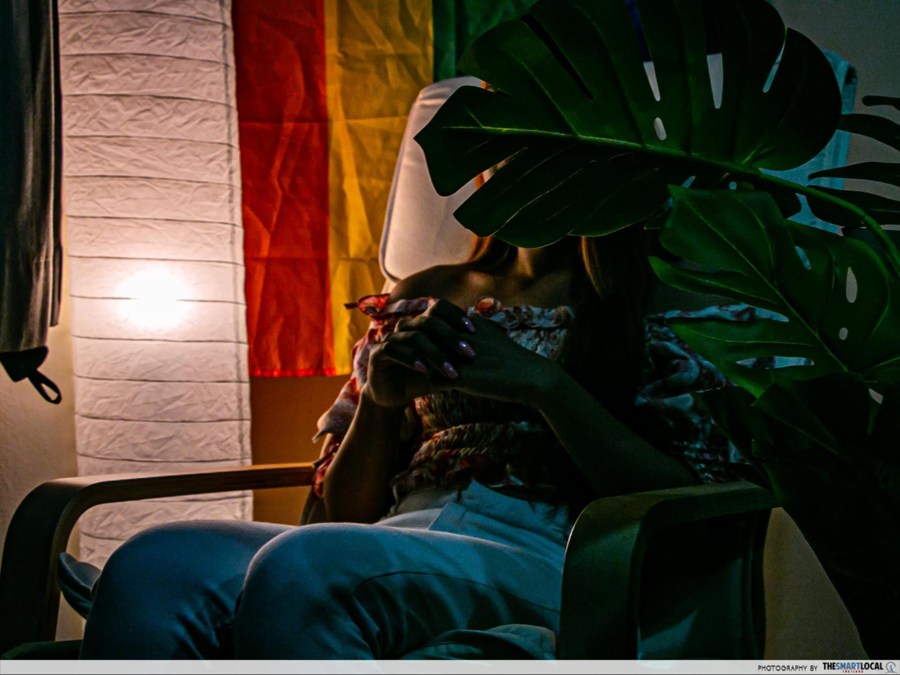
Soi Cowboy, a popular red-light district in Bangkok, looks a bit strangely empty, especially in broad daylight, as Nira and I walk through it while having our conversation.
“I went into the [sex work] industry around 4 years ago,” Nira begins.
“At first, I was really uncomfortable, but I gradually started having fun and became happier with my job.”
Before the pandemic struck, Nira said that her job made her “a lot of money” each month.
“I started off as an ‘entertainer’ in a bar, which involved a lot of talking. If customers wanted to take me out, then we would settle on the payment first before taking off,” she shares. “Simultaneously, I also worked independently on the streets.”
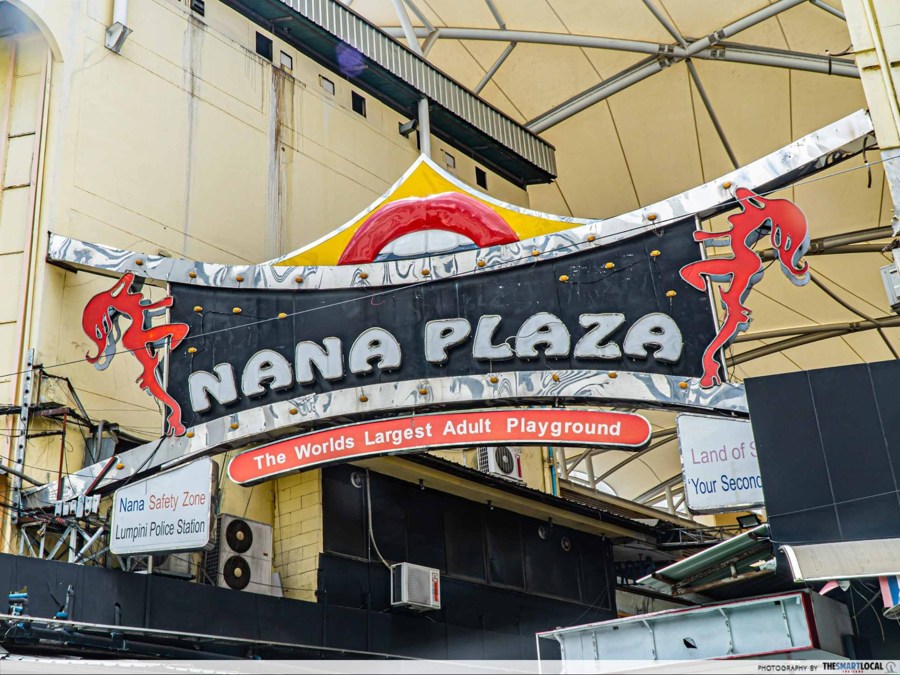 Nana Plaza is where Nira began her career as a sex worker
Nana Plaza is where Nira began her career as a sex worker
She then gave me some insight into what it was like working in a bar, and how different it is like to work as a freelancer, which is what Nira does today.
“At the bar, I was obliged to pay a small commission fee whenever I left with the customers, while I got to keep the money all to myself as a freelancer,” she adds.
Nira is now a full-time freelancer because she prefers the flexibility and higher pay, despite it meaning that she has to spend most of her hours on the streets.
“I lost all income.”
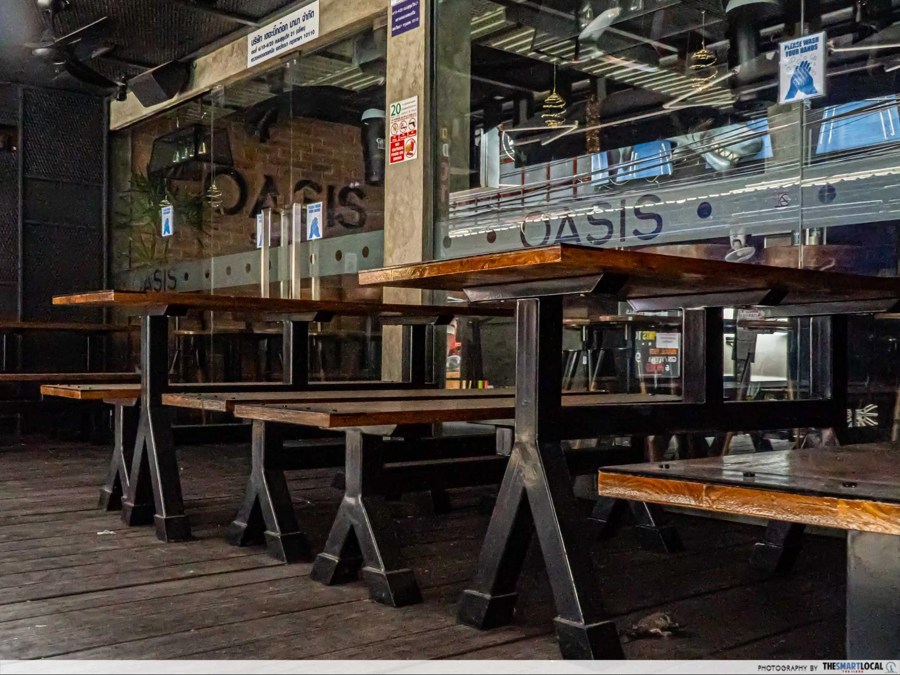 Bangkok’s nightlife today is a far cry from the vibrant city many know and love
Bangkok’s nightlife today is a far cry from the vibrant city many know and love
To combat the virus, most businesses have faced abrupt closure. The international flight bans in Thailand have also caused a huge dip in tourism in the country, with the ban being extended till the end of June. This greatly affects Nira’s life as all of her customers are now gone.
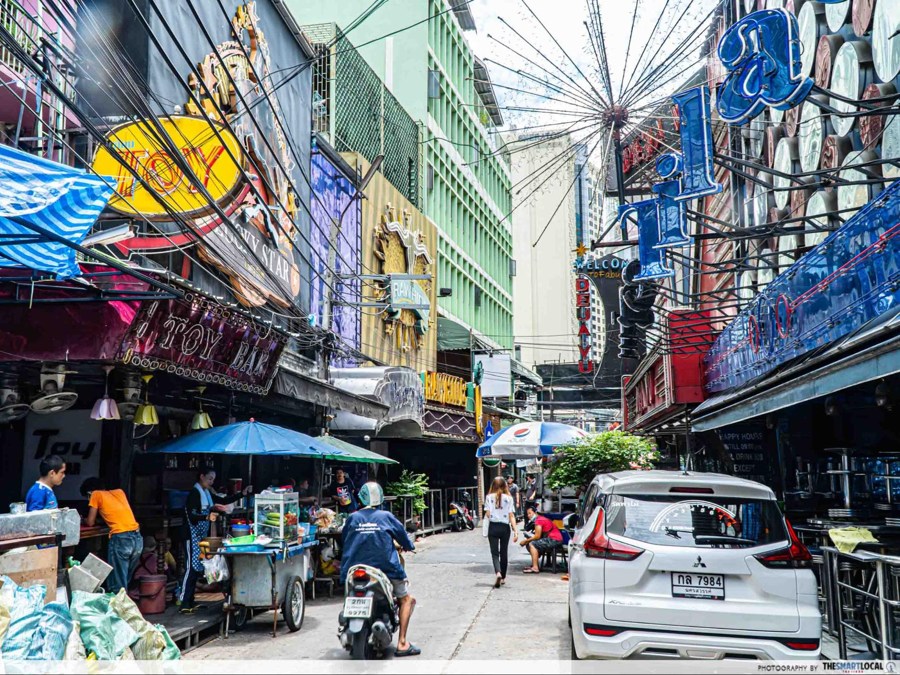 Soi Cowboy has suffered great losses because of the pandemic
Soi Cowboy has suffered great losses because of the pandemic
“Most of my clients were foreigners from Asian and European countries, so when the lockdown took place, I lost all income.”
For Nira, shopping and dining out are not options anymore. The decrease in her income has shifted the way she lives her life during the pandemic.
When I ask about how she’s been coping over the past few months, she pauses for a brief moment before answering.
“To make ends meet, I’ve been selling [cosmetics and clothes] online as a side job. I’ve also started managing my money and thinking my spending through,” Nira laments. “I’ve become very frugal.”
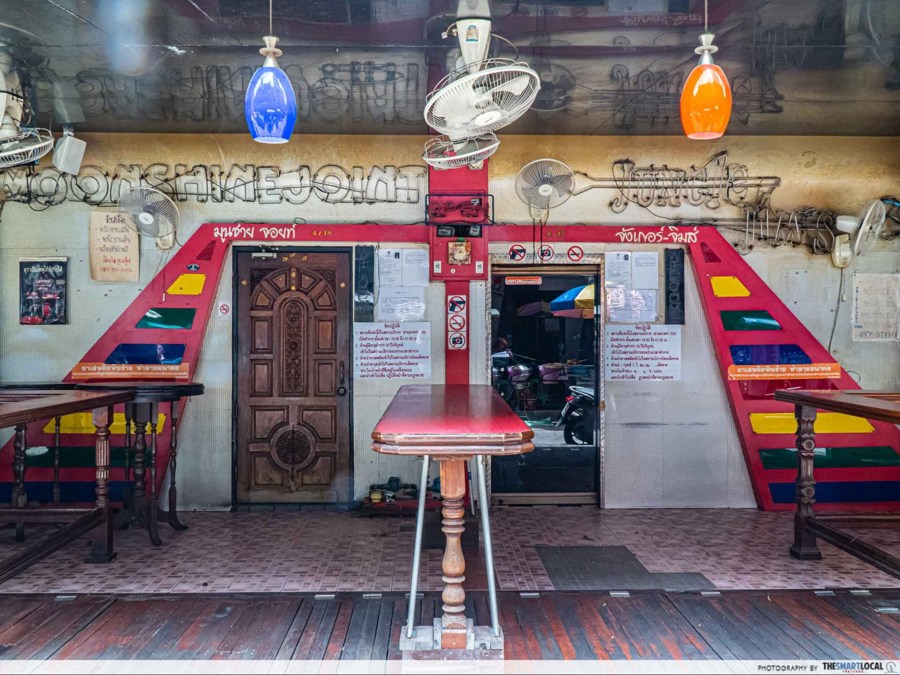
But she’s not the only one.
“Many of my coworkers are in the same situation as me,” she adds.
Although people from all walks of life have been facing financial hardships in this economy, Nira believes it’s even worse for workers in such “night-time businesses” as the curfew was in effect for months, and with the government having not set a reopening date for places like bars and entertainment venues.
Sex workers are not on cash relief
 Image credit: Posttoday
Image credit: Posttoday
In late March, the government launched a cash relief programme called ‘Rao Mai Thing Gun’, which translates to ‘We’re Not Leaving Anyone Behind’.
The relief aims to help workers whose jobs have been affected by the pandemic. If one is eligible, they would get ฿5,000 for 3 months, totalling to ฿15,000 (~USD 482).
We then ask Nira if she’s signed up for it.
“I didn’t sign up [for the cash relief fund] because my work wasn’t on the [approved] occupation list, since it’s illegal,” says Nira, her expression visibly dropping.
She added, “I believe that sex workers are bringing money into the country, just like other jobs, so I want the government to help us during a crisis like this too.”
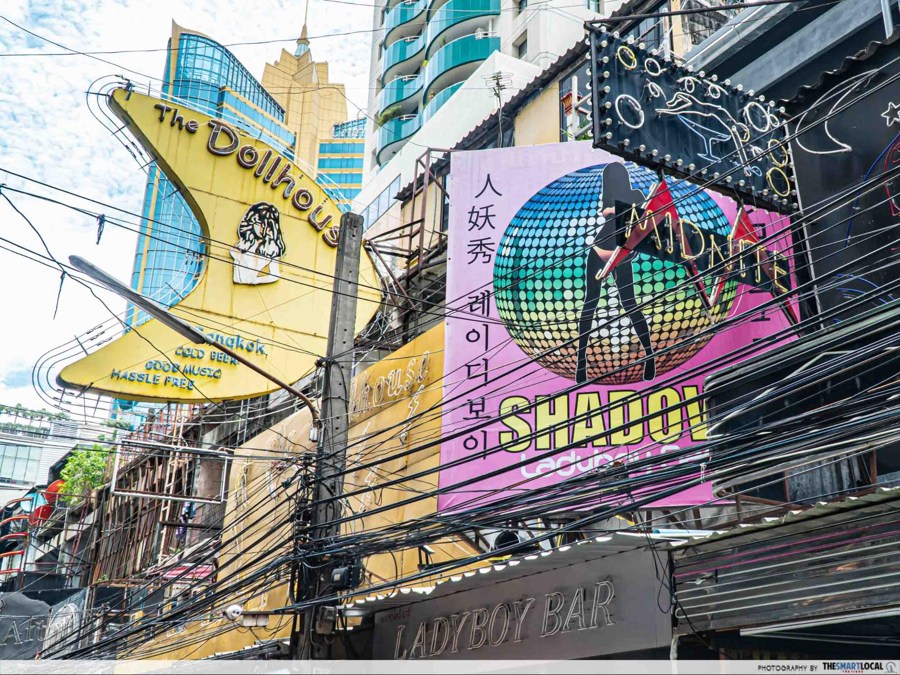
Nira is right. The tourism industry has always been a prominent sector for Thailand’s economy. Last year, it was responsible for 10% of the country’s total income, as reported by BBC Thai.
And while it’s a hard pill to swallow for some, sex workers like Nira play a part in this industry.
Stigmatised and unprotected

Being left out of the cash relief fund during the pandemic was not the only time she’s felt overlooked.
“I personally believe that [sex workers] are less likely to be protected by the law when compared to other kinds of workers,” she says.
Nira also admits to me that if anything bad were to happen during her working hours, she isn’t likely to go to the police as prostitution is still illegal in Thailand.
“Let’s say I get beaten up by my clients while on duty – I wouldn’t dare walk up to the police as I fear that I’d be the one to get prosecuted.”
It’s a harsh example, but she makes a clear point.
In a cultural aspect, sex work is still largely stigmatised by the majority of Thais, and those who participate in it are often deemed to be immoral. To that, Nira simply said: “Sex workers are human beings just like all of you. Our job is to make a living, just like yours. Stop discriminating.”
And her frustrations are valid.
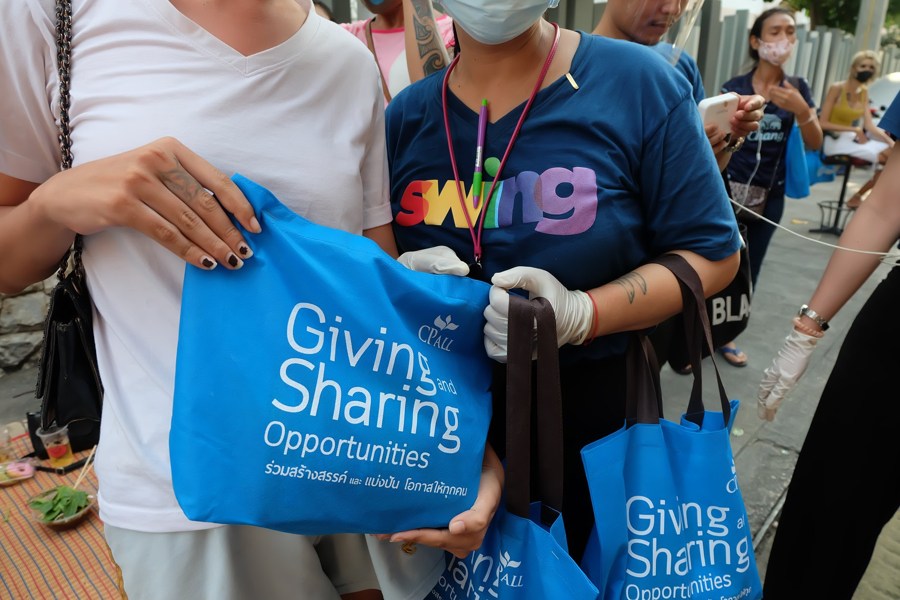 SWING volunteers giving out food and essential goods to sex workers in Pattaya and Bangkok during COVID-19
SWING volunteers giving out food and essential goods to sex workers in Pattaya and Bangkok during COVID-19
Image credit: Swing Thailand
The good news is that there are organisations out there that are working towards decriminalising prostitution, as well as to change the public’s perception and biases towards sex workers in the country. Such organisations include SWING and Empower Foundation.
Remembering that everyone is human
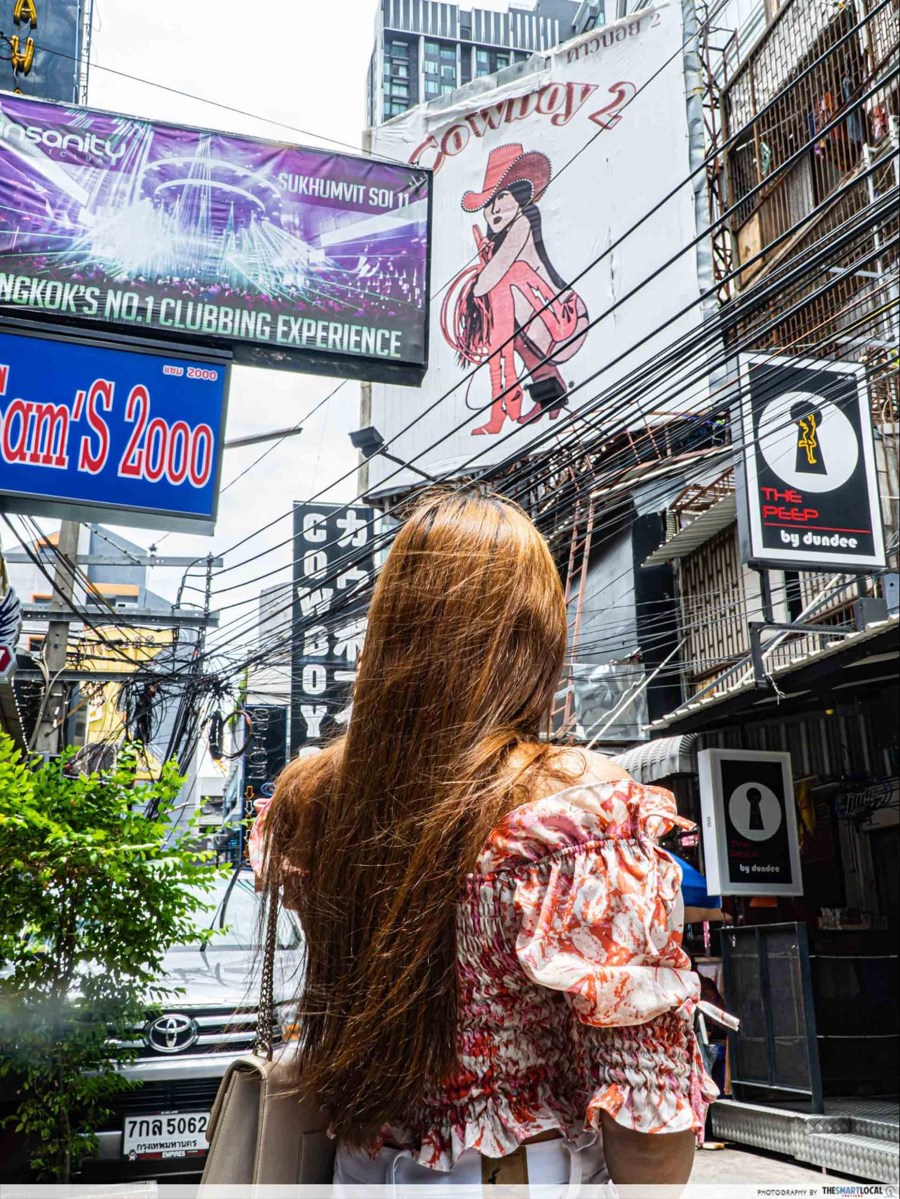
Regardless of our personal stances, it’s important to acknowledge that sex workers are just folks who are trying to make a living and provide for their own families.
Personally, I don’t think one has to necessarily agree with their life choice – but we should still respect them as human beings and not see them as anything less than. That can only begin when sex workers are being seen as equals.
Before bidding farewell, Nira leaves me with some optimism for the future.
“I still have hope, though it’s small, that prostitution will finally be decriminalised and sex workers can be protected by the government, just like others.”
To Nira and anyone else in her shoes, you’re not alone. Remember that there are many allies out there, including me and the rest of us here at TSL, who will always support and fight with you.
Most importantly, you’re neither sinners nor less worthy. Never let anybody tell you otherwise.
Organisations for sex workers in Thailand you can support:
Enjoying The Smart Local Thailand? Follow us on Facebook and Instagram for all things Thailand.
